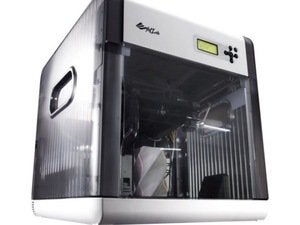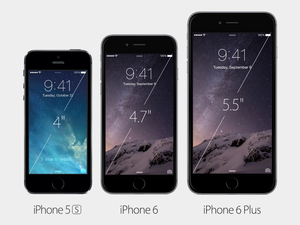Seagate Technology today announced a new object-based storage hard disk drive -- the Seagate Kinetic HDD -- that gives each hard drive its own IP address.
The new drives eliminate the need for storage servers, allowing storage applications to talk directly to tens, hundreds or thousands hard drives over Ethernet, something Seagate said can increase performance.
"We're taking the management servers ... out of the stack. Now the storage application goes to the IP address of the individual drive," said David Burks, a director of product marketing at Seagate. "Instead of associating a bucket of storage with one IP address and using a storage server to retrieve information for you, you'll have more IP addresses in your storage system and each one will represent [a] spindle or hard drive."
The Kinetic platform allows servers and storage to be scaled independently. Cloud data centers can add servers and storage at entirely different rates, matching each precisely to their needs, Seagate said.
 Seagate
Seagate By including meta data with data and giving each hard drive it's own IP address, storages applications can connect directly with the drives, elmininating the need for storage servers.
The new Kinetic drives have up to 4TB of capacity and use an open-source object-based storage protocol, which melds meta data with data, allowing scale-out network-attached storage and Hadoop big data file applications to locate data regardless of its location in a storage pool.
"Over the past decade, the unprecedented explosion of data has been driven by social media, smartphones, tablets, and the rapid growth of every sort of Internet-connected device," said Scott Horn, Seagate's vice president of marketing. "Cloud service providers (CSPs) are increasingly looking for solutions that will simplify infrastructure, improve scalability and reduce costs."
Seagate claims that by eliminating the storage server middleman, storage application performance can increase up to four times and total cost of ownership can be cut in half by eliminating servers and staff admin time.
The drives are aimed at large telecoms, cloud storage service providers, Fortune 1000 companies and government agencies, according to Burks.
Several drive chassis manufacturers, such as SuperMicro, have already built systems to house the serverless drives, and Dell is in the engineering stages of bringing a "Kinetic" chassis -- able to hold 60 drives each -- to market, Burks said.
"Not only do these eliminate a lot of old [direct-attached storage] but also all the maintenance associated with software, (i.e. drivers, HBAs and SAS expanders,)" he said. "That's a welcome thing with the development community." Traditionally, object storage applications use file systems to talk to storage servers and those servers talk to the individual hard drives. With big data, complexity can increases.
Based on the Seagate Kinetic Open Storage platform, the Kinetic HDD operates using the Swift OpenStack Object Storage protocol.
The Swift OpenStack enables the storage and retrieval of lots of data with a simple API, and it is optimized for storing unstructured data in large scale-out infrastructures.
Introduced in 2013, the Seagate Kinetic Open Storage platform has won wide industry support. AOL, Digital Sense and Hewlett-Packard have collaborated to support it and help it come to market.
"The Kinetic Open Storage platform will help AOL improve data center efficiency by reducing the number of servers required to store data for modern scale-out applications," Dan Pollack, chief architect of storage operations for AOL, said in a statement. "The addition of Kinetic devices to the storage environment creates architectural flexibility when deploying systems."
Jimmy Daily, HP's director of modular compute storage, said his company is "working closely with Seagate" to explore possible uses for the Ethernet-connected drives.
"At HP, we focus on continually driving meaningful innovation in big-data solutions and believe Kinetic technology could have a significant impact on the way data-intense applications operate in the future," Daley said.



























